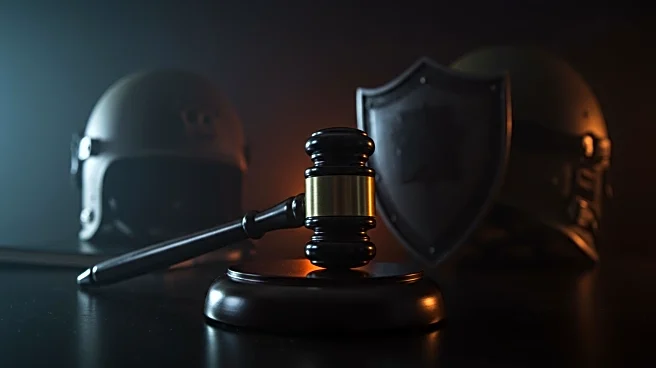What's Happening?
President Trump has announced a federal takeover of Washington D.C.'s police department, initiating a significant deployment of National Guard troops and federal agents throughout the city. This move includes efforts to clear homeless encampments and increase patrols in key areas such as the U Street corridor. The Department of Homeland Security officers and other federal agents have joined local police in patrolling the city, marking a substantial federal presence. The deployment began with National Guard members patrolling the National Mall and other strategic locations, as part of a broader initiative to enhance security and manage public order in the capital.
Why It's Important?
The federal takeover of Washington D.C.'s police department represents a significant shift in the management of local law enforcement, raising questions about federal authority and local autonomy. This action could impact public policy and civil liberties, as the increased federal presence may alter the dynamics of law enforcement in the city. Stakeholders such as local government officials, civil rights groups, and residents may express concerns over the implications for community relations and the precedent it sets for federal intervention in local matters. The move may also influence political discourse, as it reflects broader themes of governance and control.
What's Next?
The federalization of Washington D.C.'s police department is set to last for at least a month, during which time the effectiveness and consequences of this intervention will be closely monitored. Potential reactions from local leaders, civil society groups, and residents could shape future decisions regarding federal involvement in local policing. Discussions around the balance of power between federal and local authorities may intensify, potentially leading to legislative or judicial challenges. The situation may also prompt broader debates on the role of federal agencies in managing urban security and public order.
Beyond the Headlines
The deployment of federal forces in Washington D.C. raises deeper questions about the ethical and legal dimensions of federal intervention in local governance. This development could trigger long-term shifts in how federal and local authorities collaborate on security issues, potentially influencing future policies on urban management and civil rights. The cultural impact of increased federal presence may also affect community trust and engagement, highlighting the need for transparent communication and accountability in law enforcement practices.









